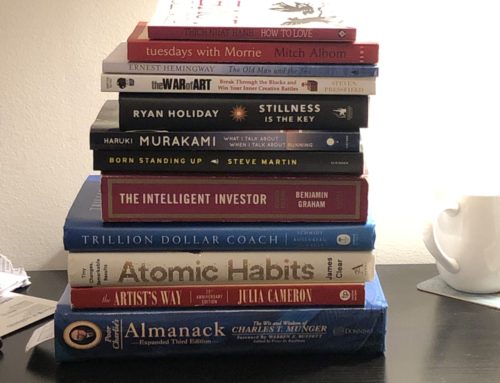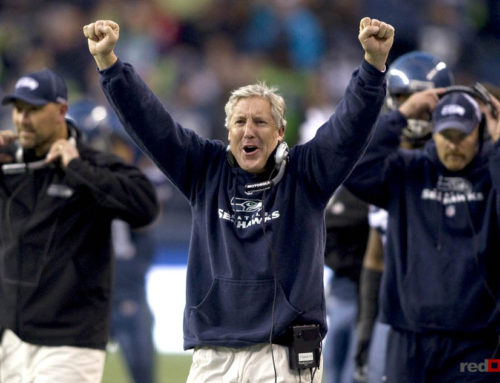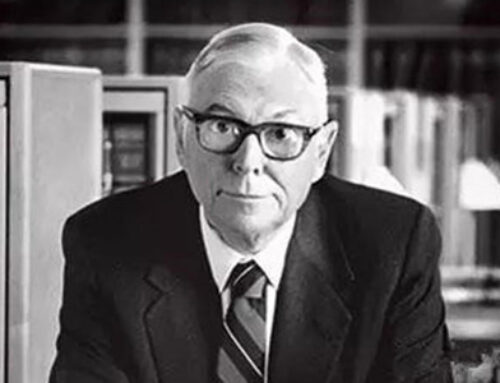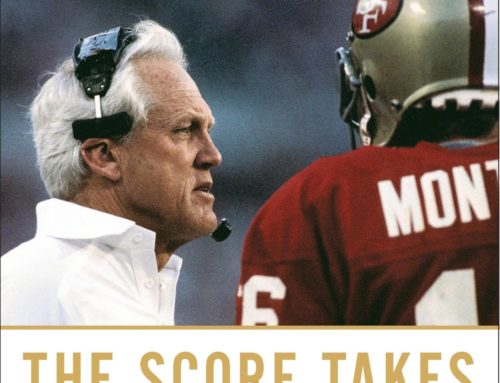I woke up with my heart racing. I rolled myself out of bed and staggered towards the kitchen. The clock above the stove read 3:57. It didn’t matter what time the alarm was set for that day, I was up.
I noticed my heart was still beating quickly. Was it a bad dream? Was I ill? No, just a racing mind from what my new reality was as a first-time manager.
Though I didn’t know it yet, I was slowly learning Bill Campbell’s #1 rule: your title makes you a manager, your people make you a leader.
Bill Campbell was a failed football coach at Columbia University turned Silicon Valley legend. After years of working his way up the ranks, Bill eventually became known as the greatest executive coach the technology industry had ever seen. His disciples make up much of the wealthiest people in the world, including Steve Jobs, Jeff Bezos, Sheryl Sandberg and hundreds of others.
The issue was, at 3:57 am that morning I did not know who Bill Campbell even was, let alone his #1 rule.
At that point, I was about four months into my new job in sales management, my first management position. Like a goofy dad dancing at a wedding, I didn’t know exactly what I was doing wrong, but I knew I wasn’t doing very well.
Why aren’t things going as planned? You’re not very good at this, are you? What am I missing? If only there was an app to silence the internal chatter like there is for the outside world.
As fate would have it, I was planning to attend a networking event that day. A chance to learn more about the reasons for my current poor performance. I locked onto the first person I met, uncharacteristically explaining my situation and seeking advice.
“Do you know who Bill Campbell is?”, he asked. When I replied in the negative, he highly suggested I pick up a recent book written about him, Trillion Dollar Coach, and give it a read.
As fate would continue, the next morning I received an Amazon package. In it is a royal blue book cover with a man in a blue football hat. The title: Trillion Dollar Coach. Thanks for the birthday gift, dad.
Two days later, the book was finished, riddled with notes, underlines and stars. It was a quake book that hit me at the right time. Here are a few things I learned:
Your people make you a leader.
There were many “Bill-isms” in the book – often-used quotes that people remember him by. One that stuck out to me was that “your title makes you a manager, your people make you a leader.” I sat with that one for more than a few moments.
I don’t care what your LinkedIn or your email signature says, you do not get to decide you’re a leader. Your team decides if you’re a leader.
As I walked around my apartment that early morning before reading the book, I was a manager but not a leader. Now, I’m making strides every day to earn the leadership and trust of my team.
Leadership is personal.
As much as we’d like to think that we have a “work self” and a “personal self”, that’s far from the truth. We all bring baggage into work. Didn’t sleep well last night, feeling self-conscious about our new haircut, motivated to pay off our massive credit card debt.
While it’s not necessarily the leader’s responsibility to probe into the personal lives of their team, they shouldn’t hide from it either. If personal issues get brought up – and they will – it’s important to handle them. Right there, right then.
When people ask me what part of management I didn’t expect, it’s this. I’m a private person and don’t like my business in the streets. But not everyone is like that. The lesson: treat your team as people and you will earn their trust.
Lead with first principles.
When I interviewed Sales Trainer John Barrows he spoke about his guiding principles. He shares these with his employees so they know where he’s coming from when he gets upset or has to make difficult decisions.
I’ve heard from entrepreneurs and psychologists that it’s important to have your personal philosophy nailed down early so that, like insurance, when you need it you already have it. Do the deep, lonely work to know your philosophy and lead with that first.
For our team, it’s attitude and effort. You do those two things, you are well on your way to being successful.
Run towards the biggest problems and when things go south, double down on your first principles.
Human nature usually tells us to avoid conflict. Conflict is how our caveman ancestors died. But attacking problems head-on is the only true way to lead. Like an overflowing trash bin, don’t let that scent linger. Take out the damn trash.
And when issues arise (trust me, they will), double down on your first principles. For us, that means continuing to reinforce that a positive attitude and hard work ethic will get us out of trouble. It’ll help us hit our numbers and attain whatever goals we’ve set.
Candor and caring.
There’s a great quote from legendary Boston Celtics coach Red Auerbach: “the players don’t con me because I don’t con them.” Put simply, give trust and get trust. Lead with radical candor.
If there’s an issue, address it. If they’re doing a great job, let them (and others) know it. Nobody should question their standing at any time. I know you may not be able to share everything, but be as much of an open book as you can.
Be an evangelist for courage.
A mentor of mine once told me his goal was “to help others become better than they THINK they can be.” I’ve been thinking about that a lot recently.
People set limits on themselves. Ceilings for how much money they “can” earn, how well they “should” do, or what’s “possible” for them. Challenge those beliefs. Be an evangelist for courage – help them become better than they ever thought possible.
Wrapping up
It’s been over a month since that morning at 3:57 and since I coincidentally found Bill Campbell’s book. Maybe the book coincidentally found me. I’m grateful for it either way.
Though I still have decades to learn more leadership lessons, it has helped me to cement my initial steps. And it’s helped me sleep better throughout the night (most of the time :)).
What lessons have you learned from Bill?
Sign up for the weekly Millennial Momentum Newsletter. No BS, All hustle














![[Podcast]: What My 80-Year-Old Grandfather Thinks About Entrepreneurship, Family Business & Regrets](https://millennialmomentum.net/wp-content/uploads/2018/08/grandpa-500x383.png)
![[Podcast]: Slow Down To Speed Up](https://millennialmomentum.net/wp-content/uploads/2018/08/Tiffani-Bova-500x383.png)






I’m not that much of a online reader to be honest but your sites really nice, keep it up!
I’ll go ahead and bookmark your website to come back
later. All the best
It consists off things like eBooks, whitepapers,
reviews, and magazines.
Vorschub leistet die Ideologie der Daten. https://www.preisbrecher-pokale.de
Es sind maximal 9 von 12 Trophäen erspielbar. https://www.preisbrecher-pokale.de/tennis-pokale-medaillen-trophaen-kaufen
Wer der Superstar des aktuellen WSA ist. https://www.Preisbrecher-Pokale.de/pokale–